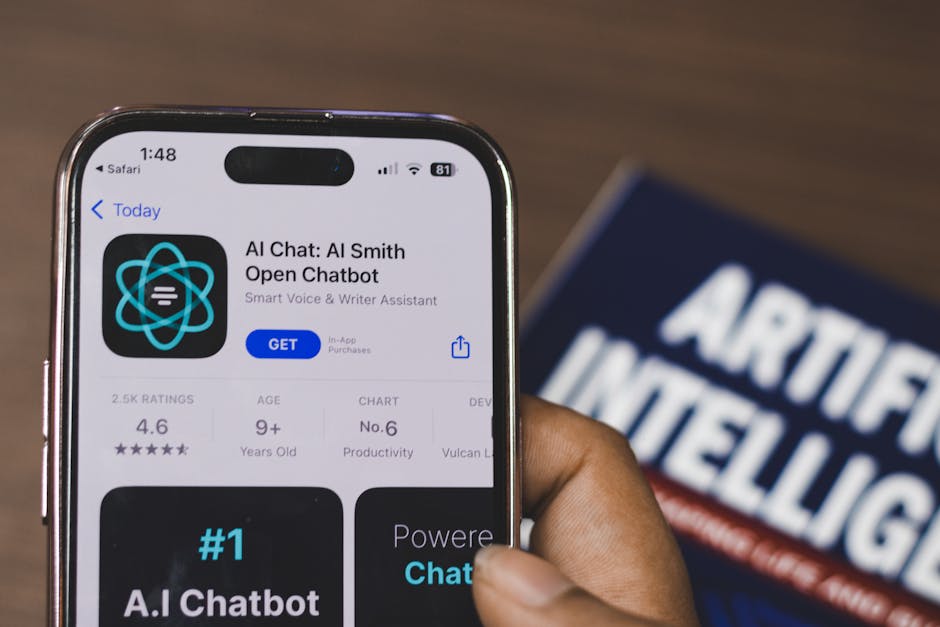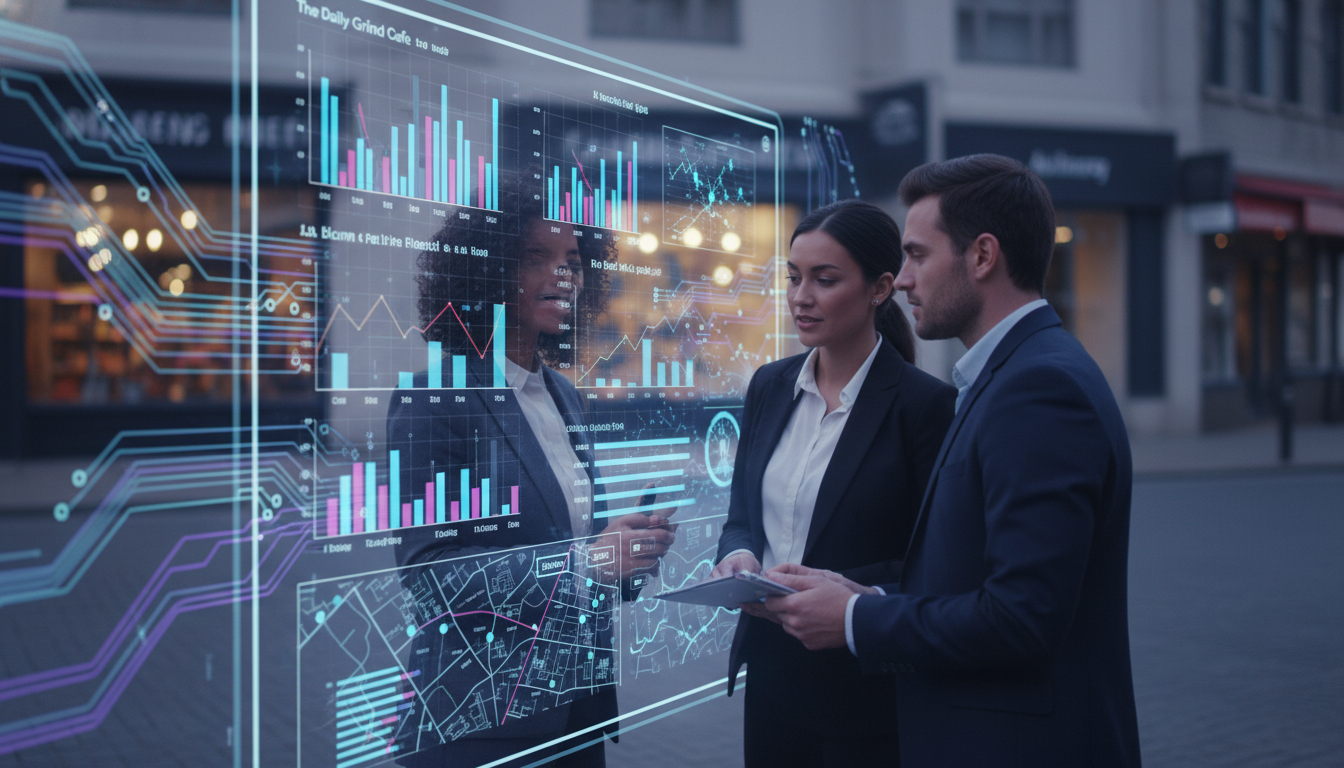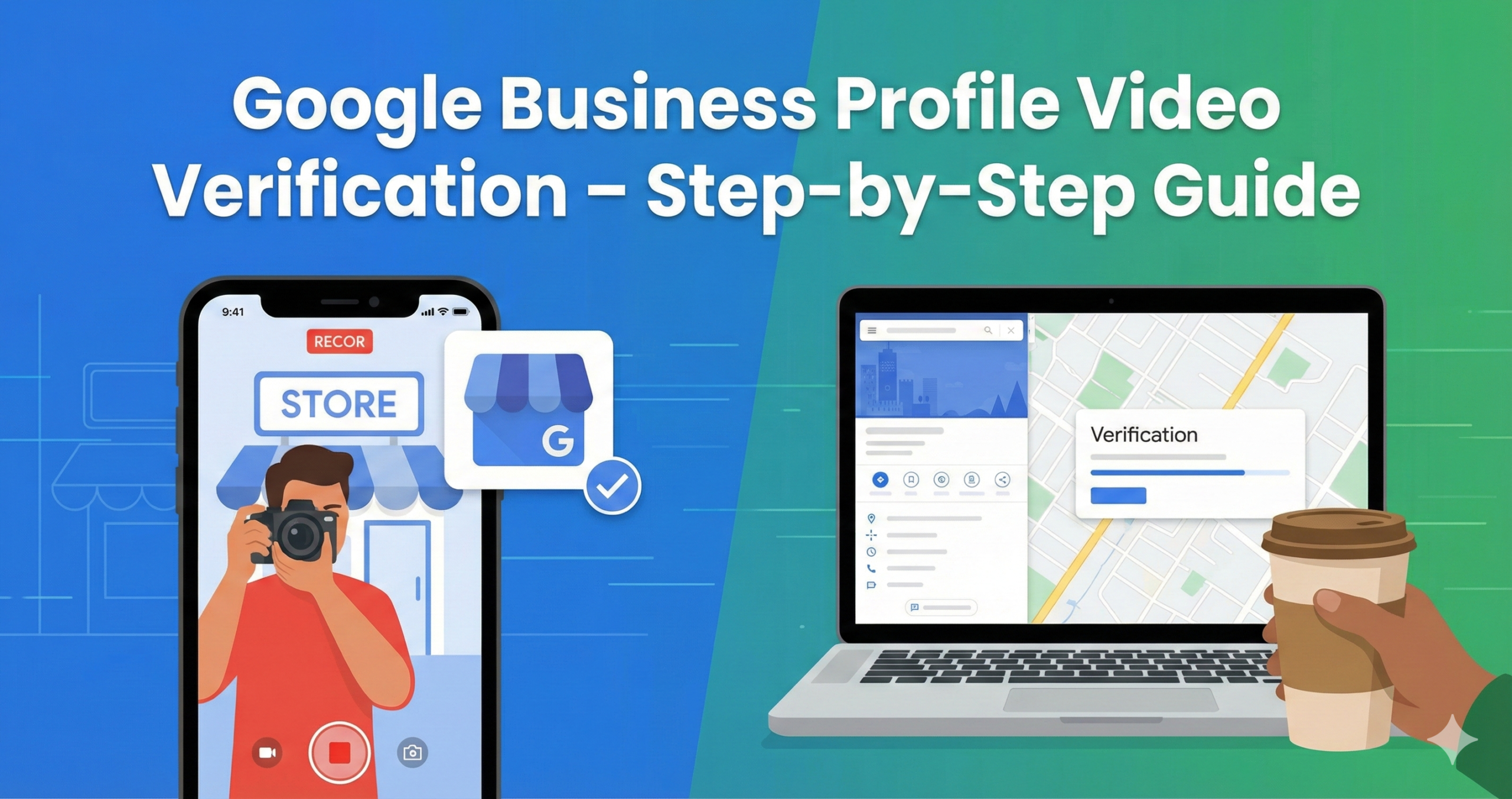
Everything You Need to Know About AI’s Impact on Digital Marketing
How will AI affect digital marketing? AI is opening up new possibilities and reshaping the way businesses reach and engage customers. In short, AI will impact digital marketing by:
- Automating repetitive tasks
- Personalizing customer experiences
- Enhancing data analysis
- Optimizing content strategies
- Predicting user behavior
Artificial intelligence (AI) in digital marketing isn’t just a trend; it’s a transformation. As AI matures, it’s freeing businesses from human constraints, allowing them to innovate and engage customers like never before. AI is now the driving force behind intelligent campaigns and authentic connections, making marketing more efficient, effective, and personal.
According to a Deloitte survey, early AI adopters in marketing aim to improve products, foster innovation, and nurture customer relationships. As businesses harness AI’s power, they gain a competitive edge through data-driven strategies and high-quality customer experiences.
I’m Ahmed Elmahdy, founder and CEO of Rocket Launch Media. Over the last 13 years, I’ve seen how AI will affect digital marketing by accelerating client growth, optimizing SEO, and fine-tuning ad campaigns.
How will ai affect digital marketing terms explained:
The Role of AI in Digital Marketing
How AI is Revolutionizing Digital Marketing in 2024
AI is not just a buzzword; it’s a game-changer. By 2024, AI will have revolutionized digital marketing in several key areas:
Personalization
AI enables hyper-personalized marketing by analyzing vast amounts of data to understand individual customer preferences. According to McKinsey, 71% of consumers expect personalization from the businesses they interact with. This means AI can tailor email campaigns, website content, and ads to match what each customer wants.
Predictive Analysis
Predictive analytics uses AI to forecast future customer behaviors based on past data. This helps businesses anticipate needs and tailor their marketing strategies. For example, AI can predict which products a customer is likely to buy next, allowing for more targeted marketing efforts.
Chatbots
AI-powered chatbots provide 24/7 customer support, handling everything from answering FAQs to resolving complex issues. Companies like National Australia Bank have implemented AI chatbots to improve customer support, providing personalized product recommendations and resolving issues quickly.
SEO
AI is changing SEO by analyzing search patterns and user behavior to optimize content. Tools like Jasper and Surfer SEO use AI to suggest keywords and improve content relevance, helping websites rank higher on search engine results pages.
Content Creation
AI tools like ChatGPT and Jasper.ai are revolutionizing content creation. These tools can generate blog posts, social media updates, and even video scripts, freeing up human marketers to focus on strategy and creativity. However, human oversight is still crucial to ensure accuracy and relevance.
Key AI Technologies Changing Marketing
Several AI technologies are making waves in digital marketing:
Dynamic Creative Optimization
Dynamic Creative Optimization (DCO) uses AI to automatically create and test multiple ad variations. This ensures that the most effective ads are shown to the right audience at the right time, improving engagement and conversion rates.
Predictive Analytics
Predictive analytics uses machine learning to analyze historical data and predict future trends. This helps businesses make data-driven decisions and optimize their marketing strategies for better results.
Anomaly Detection
Anomaly detection identifies unusual patterns in data that may indicate problems or opportunities. For example, AI can detect sudden spikes in website traffic or unusual customer behavior, allowing marketers to respond quickly.
Machine Translation
AI-powered machine translation tools break down language barriers, making it easier for businesses to reach global audiences. These tools can automatically translate content into multiple languages, ensuring consistent messaging across markets.
Audience Segmentation
AI analyzes customer data to segment audiences based on behavior, preferences, and demographics. This allows for more targeted marketing campaigns, improving engagement and conversion rates.
On-the-Spot Optimization
AI enables real-time optimization of marketing campaigns. By analyzing data as it comes in, AI can adjust strategies on the fly, ensuring that marketing efforts are always as effective as possible.

By leveraging these AI technologies, businesses can create more efficient, effective, and personalized marketing campaigns. The future of digital marketing is here, and AI is leading the charge.
Next, let’s dive into the benefits and challenges of integrating AI into digital marketing.
Benefits and Challenges of AI in Digital Marketing
Pros of AI in Digital Marketing
Cost Reduction
AI can significantly lower costs for businesses. According to an IBM study, 54% of businesses reported a reduction in costs after implementing AI. Automation of repetitive tasks like data entry, ad placement, and performance monitoring frees up human resources for more strategic activities.
Improved IT Performance
AI improves IT and network performance. The same IBM study found that 53% of businesses experienced improvements in these areas. AI tools can quickly identify and resolve issues, ensuring smoother operations.
Improved Customer Experiences
AI contributes to better customer experiences. Nearly half (48%) of businesses noted that AI helped make customers happier through personalized interactions and faster response times.
Personalized Content
AI algorithms can personalize content based on customer behavior, demographics, and preferences. This leads to more effective marketing campaigns. For example, AI can tailor email campaigns to individual preferences, boosting engagement and conversion rates.
Customer Support
AI-driven chatbots provide personalized customer support 24/7. They can handle FAQs, resolve issues, and even gather data for lead generation. Companies like National Australia Bank use AI chatbots to improve customer satisfaction.
Data Insights
Machine learning algorithms analyze vast amounts of data from social media, website analytics, and customer feedback. This provides marketers with valuable insights into customer behavior and preferences, enabling more informed decisions.
Content Quality
AI-powered tools like Jasper and Grammarly help improve content quality by suggesting improvements and ensuring relevance. These tools can generate engaging blog posts and social media updates, saving time and effort.
Visual Recognition
AI can identify objects, people, and other elements in images and videos. This capability allows for automated tagging, improved search functionality, and personalized visual content.
Fraud Detection
AI excels in detecting anomalies and preventing fraud. Predictive modeling and real-time monitoring help businesses identify suspicious activities and protect their digital marketing efforts.
Cons of AI in Digital Marketing
Lack of Emotional Intelligence
AI lacks the emotional intelligence that humans naturally possess. While AI can analyze data and make recommendations, it cannot understand the emotional nuances of human interactions. This can lead to less empathetic customer interactions.
Cultural Nuances
AI may struggle with cultural nuances. Marketing messages that resonate in one culture may not work in another. Human oversight is crucial to ensure that AI-generated content is culturally appropriate and effective.
Over-Automation
Relying too much on AI can lead to over-automation. This can make marketing campaigns feel impersonal and robotic. Balancing AI automation with human creativity is essential to maintain authenticity.
Need for Human Oversight
AI is not infallible. It requires human oversight to ensure accuracy and relevance. For instance, AI-generated content must be reviewed by humans to avoid errors and ensure it aligns with brand voice and goals.
Limitations of AI
While AI offers many benefits, it has limitations. It cannot replicate human creativity and intuition. AI tools can assist with data analysis and automation, but strategic guidance and creative input from humans are irreplaceable.

As we steer the benefits and challenges of AI in digital marketing, it’s evident that AI has the potential to transform the industry. However, finding the right balance between AI and human input is crucial for success.
Next, let’s explore best practices for integrating AI into your digital marketing strategy.
Best Practices for Integrating AI in Digital Marketing
Popular AI Tools for Digital Marketers
Incorporating AI tools into your digital marketing strategy can significantly improve efficiency and effectiveness. Here are some of the most popular AI tools that digital marketers are using:
- Jasper: Known for its copywriting capabilities, Jasper helps create engaging content in various tones and styles. It’s especially useful for generating blog posts, social media updates, and email content.
- Surfer SEO: This tool is ideal for SEO content writing. It provides data-driven recommendations for keywords and content structure to help your content rank higher on search engines.
- Zapier: Zapier automates repetitive tasks by connecting different apps and workflows, saving you time and effort.
- Grammarly: A must-have for content creators, Grammarly improves your writing by checking for grammar, spelling, and style issues.
- Hemingway Editor: This tool helps make your writing clear and concise by highlighting complex sentences and common errors.
Finding the Right Balance Between AI and Human Creativity
Human Intuition and Strategic Thinking
AI tools are powerful, but they aren’t a replacement for human intuition and creativity. For example, when working on a social media campaign, you might use AI to analyze data on your target audience’s demographics, interests, and behavior patterns. This data can help you identify the best times to post and the most effective channels to use. However, crafting compelling content that resonates with your audience still requires human creativity and expertise.
Project Complexity and Customer Impact
When integrating AI, evaluate the complexity of your projects. Some tasks, like simple customer service inquiries, can be easily automated with AI. However, more complex issues may require human intervention. For instance, while chatbots can handle FAQs, customers might prefer to speak with a human for more complicated problems.
Fact-Checking AI Insights
AI can provide valuable insights, but it’s not infallible. Always fact-check the information and insights provided by AI tools before making decisions based on them. This ensures that your strategies are based on accurate and reliable data.
Avoiding Over-Automation
While automation can save time, over-automating tasks can make your marketing campaigns feel impersonal. Balance AI automation with human creativity to maintain authenticity. For instance, while AI can generate content quickly, human review is necessary to ensure it aligns with your brand voice and goals.
Customer Preferences
Understanding customer preferences is crucial. Some customers may appreciate the efficiency of AI-driven interactions, while others may prefer the personal touch of human interaction. Tailoring your approach based on customer preferences can improve their experience and satisfaction.
To get the most out of AI, define clear roles for AI and human input. Use AI for data analysis, automation, and optimization, but rely on human insights for strategic thinking and creative tasks. For example, AI can help identify trending topics, but humans can craft the narrative that resonates with your audience.

By following these best practices, you can effectively integrate AI into your digital marketing strategy, leveraging its capabilities while preserving the human touch that makes your campaigns unique.
Next, let’s explore the future potential of AI in digital marketing and how you can prepare for it.
Conclusion
AI’s Potential
AI is changing digital marketing in ways we couldn’t have imagined a few years ago. From automating repetitive tasks to providing deep data insights, AI tools are making it easier for marketers to be more efficient and effective. For instance, AI can analyze large datasets to predict customer behavior, enabling more personalized marketing campaigns. This level of personalization can lead to higher engagement rates and better ROI.
Human Creativity
Despite the incredible capabilities of AI, human creativity remains irreplaceable. AI can generate content, but it lacks the emotional intelligence and cultural nuances that humans bring to the table. For example, while AI can help create a blog post, it still requires a human touch to ensure the content resonates with the target audience. Human intuition and creativity are essential for crafting compelling stories and strategic campaigns that AI alone cannot achieve.
Rocket Launch Media
At Rocket Launch Media, we specialize in leveraging AI to drive growth and generate qualified leads. Our expertise in PPC, SEO, and social media advertising ensures that you get tangible results like sales and revenue, not just metrics. By combining AI tools with human creativity, we help our clients stay ahead in the competitive digital landscape. Learn more about our services and see how we can help you achieve your marketing goals.
Future of Digital Marketing
The future of digital marketing is bright, with AI playing a pivotal role. As AI technologies continue to evolve, they will offer even more sophisticated tools for data analysis, content creation, and customer engagement. However, the key to success will be the strategic use of AI, combined with human insights and creativity. By staying informed and adapting to new technologies, marketers can ensure they remain relevant and effective in an ever-changing digital world.
Strategic Use of AI
To make the most of AI in digital marketing, it’s crucial to strike a balance between automation and human input. Use AI for data-driven tasks like audience segmentation and performance analysis, but rely on humans for creative and strategic decisions. This balanced approach will help you create more effective and engaging marketing campaigns.
By embracing AI and integrating it wisely into your marketing strategy, you can open up new opportunities and stay ahead of the competition. AI is not here to replace us but to improve our capabilities and make our work more impactful.
By following these best practices, you can effectively integrate AI into your digital marketing strategy, leveraging its capabilities while preserving the human touch that makes your campaigns unique. Ready to transform your digital marketing strategy with AI? Learn more about our services and see how we can help you achieve your goals.







